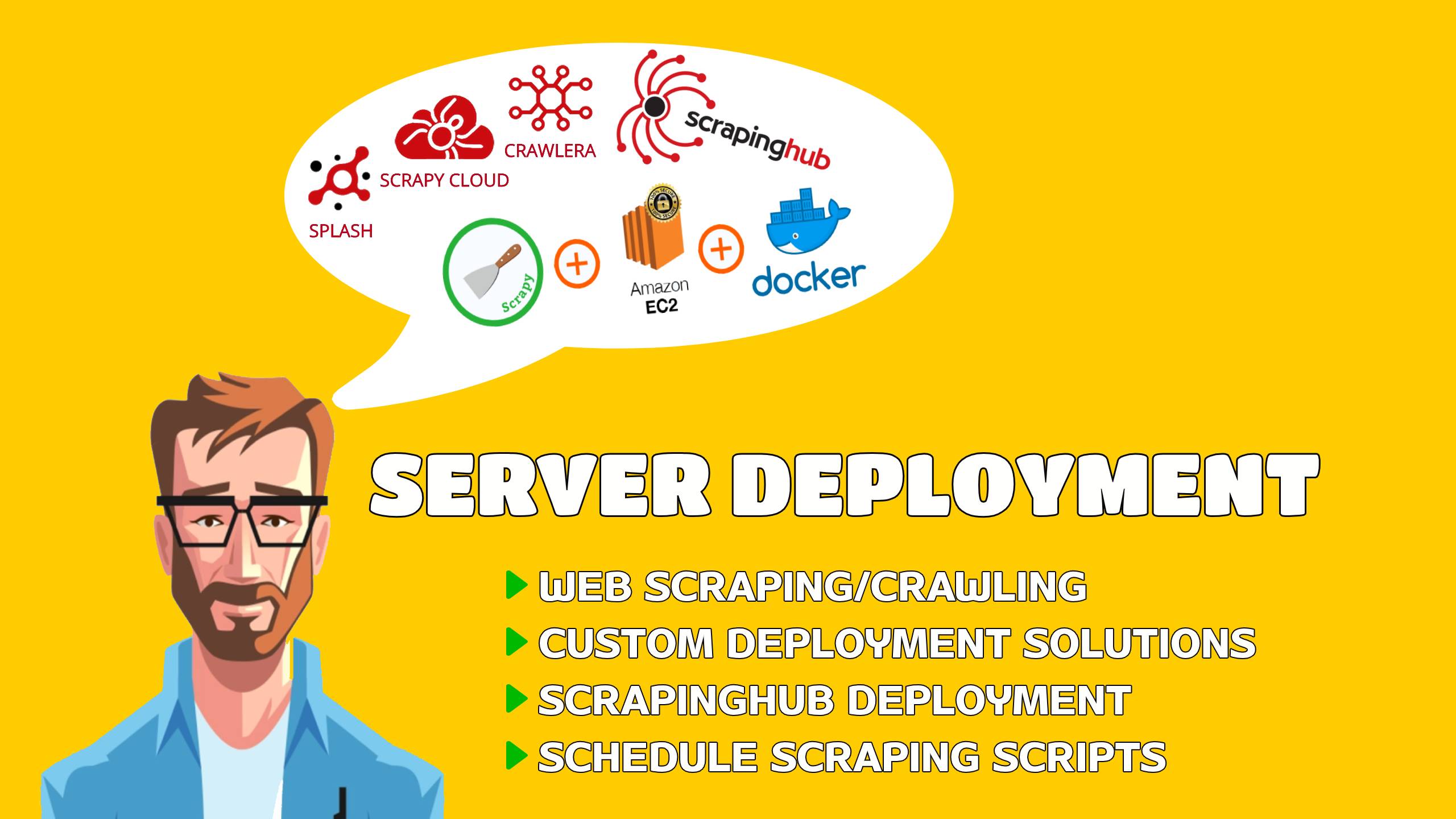Web Scraping Solutions
We know that the Internet is a highly resourceful yet confusing place to be in. To make sense of the exhaustive data you either have to configure new tools, handle a complicated UI or build your own scraping infrastructure which demands additional resources for not just the initial set up but the subsequent maintenance too.
Scrapeworks was ideated to ease the entire web scraping procedure and take you straight to insightful web data.
Trusted Proxies' Enterprise-Level web scraping solutions enable high-speed web scraping and search engine data extraction, without blocks. Web Scraping solutions: any volume, any website We can extract data from any web source, including online stores and marketplaces, financial portals, and betting & job search websites and in any format, including CSV, Excel, TXT, HTML, and databases.
Google chrome from iphone on mac. We’ve played with public web data at our parent company - Mobius Knowledge services, since the bloom of the Information age. We began our enterprising journey in 2002 by making public data viable for the thriving e-Commerce industry and later ventured into an assortment of industries like media, travel & logistics, oil & energy, finance, and real estate to name a few. Take a look at our box of unique solutions here.
Having tried and tested various scraping and crawling techniques for almost 15 years now, we’ve learned every aspect of the trade down to the teensy-weensy detail. Our prowess in scraping has enabled us to deliver custom data solutions of super-high quality, every single time. We’ve pooled in all our scraping expertise at the Scrapeworks factory so that you can have the best of web data for your business in the most effortless of ways.
Scrapeworks, just like any other factory, is always abuzz with bots dutifully fetching web data and are ever under the watchful eyes of an able team of nerdy engineers, savvy supervisors, and quality assurance freaks. Come meet us at our workstation!
Monday, February 01, 2021A web scraper (also known as web crawler) is a tool or a piece of code that performs the process to extract data from web pages on the Internet. Various web scrapers have played an important role in the boom of big data and make it easy for people to scrape the data they need.

Among various web scrapers, open-source web scrapers allow users to code based on their source code or framework, and fuel a massive part to help scrape in a fast, simple but extensive way. We will walk through the top 10 open source web scrapers in 2020.
1. Scrapy
Language: Python
Scrapy is the most popular open-source and collaborative web scraping tool in Python. It helps to extract data efficiently from websites, processes them as you need, and store them in your preferred format(JSON, XML, and CSV). It’s built on top of a twisted asynchronous networking framework that can accept requests and process them faster. With Scrapy, you’ll be able to handle large web scraping projects in an efficient and flexible way.
Advantages:
- Fast and powerful
- Easy to use with detailed documentation
- Ability to plug new functions without having to touch the core
- A healthy community and abundant resources
- Cloud environment to run the scrapers
2. Heritrix
Language: JAVA
Heritrix is a JAVA based open source scarper with high extensibility and designed for web archiving. It highly respects the robot.txt exclusion directives and Meta robot tags and collects data at a measured, adaptive pace unlikely to disrupt normal website activities. It provides a web-based user interface accessible with a web browser for operator control and monitoring of crawls.
Advantages:
Web Scraping Solutions For Windows
- Replaceable pluggable modules
- Web-based interface
- Respect to the robot.txt and Meta robot tags
- Excellent extensibility
3. Web-Harvest
Language: JAVA
Web-Harvest is an open-source scraper written in Java. It can collect useful data from specified pages. In order to do that, it mainly leverages techniques and technologies such as XSLT, XQuery, and Regular Expressions to operate or filter content from HTML/XML based web sites. It could be easily supplemented by custom Java libraries to augment its extraction capabilities.
Advantages:
- Powerful text and XML manipulation processors for data handling and control flow
- The variable context for storing and using variables
- Real scripting languages supported, which can be easily integrated within scraper configurations
Mac app store download for pc. 4. MechanicalSoup
Language: Python
MechanicalSoup is a Python library designed to simulate the human’s interaction with websites when using a browser. It was built around Python giants Requests (for http sessions) and BeautifulSoup (for document navigation). It automatically stores and sends cookies, follows redirects, and follows links and submits forms. If you try to simulate human behaviors like waiting for a certain event or click certain items rather than just scraping data, MechanicalSoup is really useful.
Advantages:
- Ability to simulate human behavior
- Blazing fast for scraping fairly simple websites
- Support CSS & XPath selectors
5. Apify SDK
Language: JavaScript
Apify SDK is one of the best web scrapers built in JavaScript. The scalable scraping library enables the development of data extraction and web automation jobs with headless Chrome and Puppeteer. With its unique powerful tools like RequestQueue and AutoscaledPool, you can start with several URLs and recursively follow links to other pages and can run the scraping tasks at the maximum capacity of the system respectively.
Advantages:
- Scrape with largescale and high performance
- Apify Cloud with a pool of proxies to avoid detection
- Built-in support of Node.jsplugins like Cheerio and Puppeteer
6. Apache Nutch
Language: JAVA
Apache Nutch, another open-source scraper coded entirely in Java, has a highly modular architecture, allowing developers to create plug-ins for media-type parsing, data retrieval, querying and clustering. Being pluggable and modular, Nutch also provides extensible interfaces for custom implementations.
Advantages:
- Highly extensible and scalable
- Obey txt rules
- Vibrant community and active development
- Pluggable parsing, protocols, storage, and indexing
7. Jaunt
Language: JAVA
Jaunt, based on JAVA, is designed for web-scraping, web-automation and JSON querying. It offers a fast, ultra-light and headless browser which provides web-scraping functionality, access to the DOM, and control over each HTTP Request/Response, but does not support JavaScript.

Advantages:
- Process individual HTTP Requests/Responses
- Easy interfacing with REST APIs
- Support for HTTP, HTTPS & basic auth
- RegEx-enabled querying in DOM & JSON
8. Node-crawler
Language: JavaScript
Node-crawler is a powerful, popular and production web crawler based on Node.js. It is completely written in Node.js and natively supports non-blocking asynchronous I/O, which provides a great convenience for the crawler's pipeline operation mechanism. At the same time, it supports the rapid selection of DOM, (no need to write regular expressions), and improves the efficiency of crawler development.

Advantages:
- Rate control
- Different priorities for URL requests
- Configurable pool size and retries
- Server-side DOM & automatic jQuery insertion with Cheerio (default) or JSDOM
Web Scraping Solutions Reviews

9. PySpider
Language: Python
PySpider is a powerful web crawler system in Python. It has an easy-to-use Web UI and a distributed architecture with components like scheduler, fetcher, and processor. It supports various databases, such as MongoDB and MySQL, for data storage.
Advantages:
- Powerful WebUI with a script editor, task monitor, project manager, and result viewer
- RabbitMQ, Beanstalk, Redis, and Kombu as the message queue
- Distributed architecture
Web Scraping Software
10. StormCrawler
Language: JAVA
StormCrawler is a full-fledged open-source web crawler. It consists of a collection of reusable resources and components, written mostly in Java. It is used for building low-latency, scalable and optimized web scraping solutions in Java and also is perfectly suited to serve streams of inputs where the URLs are sent over streams for crawling.
Advantages:
- Highly scalable and can be used for large scale recursive crawls
- Easy to extend with additional libraries
- Great thread management which reduces the latency of crawl
Open source web scrapers are quite powerful and extensible but are limited to developers. There are lots of non-coding tools like Octoparse, making scraping no longer only a privilege for developers. If you are not proficient with programming, these tools will be more suitable and make scraping easy for you.
日本語記事:2020年オープンソースWebクローラー10選
Webスクレイピングについての記事は 公式サイトでも読むことができます。
Artículo en español:10 Mejores Web Scraper de Código Abierto en 2020
También puede leer artículos de web scraping en el Website Oficial
Web Scraping Solutions Near Me
Author: Yina
